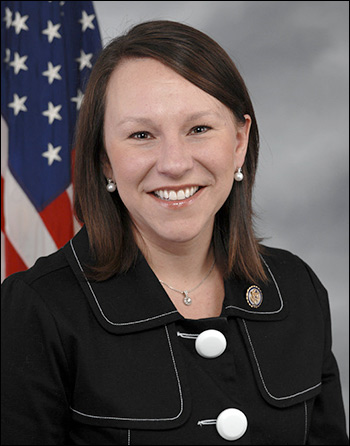By Jim Ellis
 May 22, 2018 — Another four states will host regular primaries tonight. Today, we preview Arkansas, Georgia, Kentucky and Texas.
May 22, 2018 — Another four states will host regular primaries tonight. Today, we preview Arkansas, Georgia, Kentucky and Texas.
ARKANSAS
The Natural State features a rather quiet election cycle, but a couple of key primaries are on the docket for today.
Gov. Asa Hutchinson (R) seeks re-nomination for a second term and faces only minor opposition from gun range owner Jan Morgan. Former non-profit executive Jared Henderson is expected to win the Democratic primary. Gov. Hutchinson is the prohibitive favorite for re-election in the fall.
With no Senate race in Arkansas this year, the four House races, possibly with one exception, appear to yield little in the way of serious competition.
Reps. Rick Crawford (R-Jonesboro) and French Hill (R-Little Rock) are unopposed for re-nomination. Reps. Steve Womack (R-Rogers) and Bruce Westerman (R-Hot Springs) drew only minor opposition.
Only Rep. Hill looks to have a serious opponent in November. State Rep. Clarke Tucker (D-Little Rock), who has raised over $600,000 and had almost $240,000 in his campaign account through the pre-primary May 2nd report, is a credible candidate. He is expected to win the nomination, with the only question being whether one of his three Democratic opponents can force a run-off.
In any race where no candidate receives a majority vote, the top two advance to a June 19 run-off.
GEORGIA
Gov. Nathan Deal (R) is ineligible to seek re-election, so the open governor’s race tops the election card this year.
The Fox5 news outlet in Atlanta sponsored a pre-primary poll (May 15-16; 522 likely Georgia Democratic primary voters, 515 likely Georgia Republican primary voters) and found former state House Minority Leader Stacy Abrams topping former state Rep. Stacey Evans by a large 58-19 percent margin in the Democratic primary. Abrams is expected to win outright tonight.
On the Republican side, going to a run-off appears likely as the Fox5 poll finds Lt. Gov. Casey Cagle drawing 31 percent followed by Secretary of State Brian Kemp with 20 percent. State Sen. Hunter Hill (R-Atlanta) is third at 14 percent, and businessman Clay Tippins attracting 12 percent support. State Sen. Michael Williams (R-Cumming) then registers only five percent preference.
Georgia also has no Senate race in 2018, but does have 14 incumbent House members all seeking re-nomination and re-election. Each is expected to win re-nomination.
Two primaries of note occur in Districts 6 and 7. Rep. Handel winning the most expensive congressional race in history back in June (likely exceeding a combined $50 million) means she is attracting several Democratic opponents vying for the nomination in order to challenge her in the regular election. Since special election nominee Jon Ossoff chose not to seek a re-match, the leading contenders among the four Democratic candidates appear to be former news anchor Bobby Kaple and businessman Kevin Abel who have raised a combined $1.1 million for the primary campaign. Gun control activist Lucy McBath could draw enough support to force Kaple and Abel into a July 24 run-off election.
In the 7th District, four-term Rep. Rob Woodall (R-Lawrenceville) looks to be facing a credible general election challenge, from either learning center chain CEO David Kim, former state Budget director Carolyn Bourdeaux, or software developer Ethan Pham. Combined, the group had raised a cumulative $1.5 million prior to the May 2 pre-primary campaign disclosure filing.
KENTUCKY
With no governor or senator on the ballot this year, the six House races lead the Kentucky 2018 ticket. All six congressmen, five Republicans and one Democrat, are seeking re-election and none have serious primary opposition tomorrow.
The most interesting race is the 6th District Democratic primary where Lexington-Fayette Mayor Jim Gray and retired Marine Corps Lt. Col. Amy McGrath, a veteran of both the Iraq and Afghanistan wars, are in a spirited battle among a field of six candidates.
Mayor Gray raised $1.3 million before the May 2nd pre-primary filing deadline. Col. McGrath had brought in an impressive $2.0 million, but had already spent all but $300,000 as the candidates turned for the final three weeks that were remaining in the primary campaign.
Tomorrow’s winner faces three-term Rep. Andy Barr (R-Lexington), who’s raised over $2.48 million for this campaign and has $2.31 million cash-on-hand. This will be a competitive race in the fall regardless of who claims the Democratic nomination tomorrow night.
TEXAS
Thirteen significant Lone Star State political run-offs will be decided today, thus ending the nomination process that began with the Texas primary election back on March 6.
In the governor’s race, Dallas County Sheriff Lupe Valdez and businessman Andrew White, the son of the late former Texas Gov. Mark White (D), do battle for the Democratic nomination. Sheriff Valdez placed first in the March 6 vote with 43 percent versus White’s 27 percent, but she failed to reach the majority plateau. Therefore, the two were forced into today’s run-off. Originally, nine Democrats were on the ballot. The winner faces Gov. Greg Abbott (R), who is the prohibitive favorite for re-election.
TX-2: This Houston suburban seat yields a Republican run-off contest between state Rep. Kevin Roberts (R-Houston) and retired Navy officer Dan Crenshaw. The Republican winner will be the prohibitive favorite to win the seat in the fall and replace retiring Rep. Ted Poe (R-Atascocita).
TX-5: Retiring Rep. Jeb Hensarling (R-Dallas) leaves a Republican run-off to decide his successor. State Rep. Lance Gooden (R-Kaufman County) received 30 percent in the March 6 election and now faces former Hensarling campaign manager and political fundraiser Bunni Pounds, who the congressman publicly supports. Pounds attracted 22 percent in the field of eight candidates. The Republican nominee will be the heavy favorite in November. He or she will oppose former Terrell City Councilman Dan Wood (D) in the general election.
TX-6: Tarrant County Tax Assessor and former congressional staff member Ron Wright (R) came within five percentage points of clinching the nomination outright in March. He now faces the distant second place finisher, pilot Jake Ellzey, in today’s vote. Wright is the heavy favorite for the GOP nomination and the seat.
TX-7: In the first significant Democratic run-off of the evening, Rep. John Culberson (R-Houston) will find out whom he will face in what could become a competitive general election. Attorney Lizzie Pannill Fletcher, who most of the Democratic Party establishment backs, placed first in March with a 29-24 percent margin over author Laura Mosher. A close finish is expected tonight.
TX-21: This San Antonio-Austin district is the second of three seats where both parties are holding run-off electoral contests. For the favored Republicans, former Ted Cruz chief of staff Chip Roy topped a field of 18 candidates with 27 percent of the vote. He now faces businessman and frequent candidate Matt McCall who captured 17 percent. Roy is favored to ultimately replace retiring Rep. Lamar Smith (R-San Antonio), who won his first congressional election in 1986. The Democratic race features aerospace engineer Joseph Kopser and Baptist Minister Mary Wilson. Wilson placed first in the March 6th primary with 31 percent of the vote, followed closely by Mr. Kopser’s 29 percent.
TX-23: In the state’s one true swing district that stretches from San Antonio to El Paso, Rep. Will Hurd (R-San Antonio) runs for a third term. Since it’s origination, this district has seen all six of its previous representatives suffer a defeat at the polls. In the Democratic run-off, former US Trade official Gina Ortiz Jones, who captured 42 percent of the vote in the first election, strives to win the nomination against educator and former San Antonio City Council candidate Rick Trevino. Trevino pulled 17 percent support in the field of five original Democratic candidates. Jones is favored to win tonight. We can expect another toss-up campaign for the fall.
TX-27: Resigned Rep. Blake Farenthold (R-Corpus Christi) leaves an open seat and a June 30 special election in his wake. Tonight, both parties will host run-off elections. Republicans are favored to hold the seat, and former Water Development Board chairman Bech Bruun and ex-Victoria County Republican Party chairman and media production company owner Michael Cloud are vying for the party nomination.
TX-31: A spirited Democratic run-off is taking place in Williamson and Bell Counties, as Afghan War veteran and author M.J. Hegar faces Dr. Christine Mann, a physician. In the primary, Hegar garnered 45 percent versus Dr. Mann’s 34 percent. The winner then begins an uphill challenge against eight-term veteran Rep. John Carter (R-Round Rock).
TX-32: In 2016, 11-term Rep. Pete Sessions (R-Dallas) had no Democratic Party opposition. This year, seven Democrats competed in the primary, and two advanced into the run-off election. Civil Rights attorney and former Tennessee Titans NFL football player Colin Allred opposes former Agriculture Deputy Undersecretary Lillian Salerno for the party nomination. In the March 6 primary, Allred earned 38 percent support while Salerno took 18 percent. Allred is favored today and, with its changing demographics, this general election campaign will be more competitive than in immediate past years.


